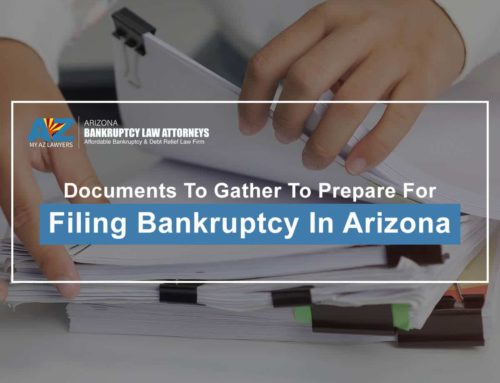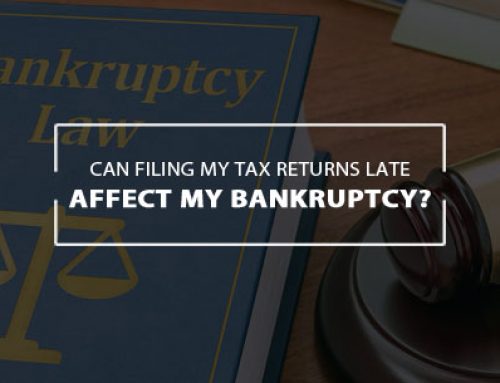The 3 Most Important Connections Between Divorce and Bankruptcy
1. Financial Obligations
Filing for either bankruptcy or divorce involves complicated financial issues. When these two legal filings intersect, the issues can become even more complicated.
 There are two main types of financial obligations that arise from divorce and can impact a bankruptcy: (1) support to provide for a child or spouse, and (2) the division of marital property. Generally support obligations remain enforceable in a Chapter 7 or Chapter 13 bankruptcy, whereas outstanding obligations regarding property division may be wiped out in a Chapter 13 (though generally not in a Chapter 7). However, it’s not uncommon for support obligations and property divisions to overlap; for example, in order to reduce or eliminate spousal support, a divorcing couple may choose to divide their property unequally.
There are two main types of financial obligations that arise from divorce and can impact a bankruptcy: (1) support to provide for a child or spouse, and (2) the division of marital property. Generally support obligations remain enforceable in a Chapter 7 or Chapter 13 bankruptcy, whereas outstanding obligations regarding property division may be wiped out in a Chapter 13 (though generally not in a Chapter 7). However, it’s not uncommon for support obligations and property divisions to overlap; for example, in order to reduce or eliminate spousal support, a divorcing couple may choose to divide their property unequally.
It follows, therefore, that the best way to avoid any negative impact on your divorce or bankruptcy filings is to be fully disclosing with all of your divorce and bankruptcy professionals. You should inform your bankruptcy attorney about the likelihood of divorce, and your divorce mediator or attorney that you are considering bankruptcy.
2. Timing
One of the most important considerations is whether to file for bankruptcy before or after filing for divorce. This is because there are advantages and disadvantages to both depending on your particular situation.
On the one hand, if you file for bankruptcy jointly with your spouse before filing for divorce, you will save money on court fees and likely attorney fees as well. Additionally, filling jointly will simplify the assets and debts division upon the divorce, also lowering divorce costs. Furthermore, as long as the divorce is filed more than 180 days after the bankruptcy, property awarded in a divorce cannot be reached by creditors. For these reasons, filing and completing the bankruptcy first is likely to simplify both processes, and may be financially advantageous to the divorcing parties.
On the other hand, if you begin the divorce process before filing for bankruptcy, it may create more options for the type of bankruptcy you choose to pursue. A Chapter 7 is a liquidation bankruptcy designed to eliminate unsecured debts such as credit card debt and medical bills. A Chapter 13 bankruptcy, a more complicated process, allows you to pay back some or all of your debts through a three to five year repayment plan. In a Chapter 7, you usually receive a discharge after only a few months so it can be completed quickly before a divorce. However, as the Chapter 13 process takes a long time to complete, and can even further complicate the divorce process, it may make more sense to file and complete the divorce first.
There are many other factors that impact the decision regarding timing of filing for bankruptcy, such as for instance the exemptions that you are entitled to. During a bankruptcy, property can be sold by the trustee to pay your debts. Prior to this occurring, however, careful planning with the guidance of a bankruptcy attorney before filling could help protect some of your exempted assets. The number of exemptions you may take, regardless of whether you choose to file the bankruptcy individually or jointly, are limited. For example, many states, including Arizona, do not allow federal exemptions. Additionally, though certain exemptions can be doubled by married couples filing bankruptcy jointly, this is not the case for the Arizona homestead exemption (which protects your home from the bankruptcy process). Thus, in order to receive the greatest number of exemptions possible, it may be more advantageous to file bankruptcy individually after the property has been divided in the divorce.
Another consideration when deciding whether to file for bankruptcy or divorce first is income. When filing jointly for bankruptcy, you and your spouse must submit your combined income – which if too high may make both of you ineligible for a Chapter 7 bankruptcy. If this is your situation, you may need to wait to file bankruptcy until the divorce is finalized, so that each of you can file individually using your separate incomes.
3. Working Together
Financial stress accompanies almost any divorce. Dividing up property, allocating debts, establishing a workable budget for two households, and the other monetary matters typically involved in divorce can and often do become very contentious. Adding bankruptcy to this mix increases the financial and emotional tensions involved in these already challenging proceedings. Thus, when a couple considers divorce and bankruptcy simultaneously, it is important they work together to make this process as seamless as possible.
In general, working together means you and your spouse do everything possible to diminish conflict. This includes doing your best to avoid the heightened hostility (and cost) that typically occurs when adversarial divorce lawyers are involved. Accordingly, you might consider hiring either collaborative lawyers or a professional mediator. Although hiring one professional mediator is typically far less costly and time consuming than hiring two collaborative lawyers, the processes involved in both mediation and collaboration will provide you with information regarding legal, financial, parenting and other considerations in order to ensure that the decisions you make relating to both your divorce and bankruptcy are compatible, save time and money, and are legally binding.
Guest Blog By:
Out-of-Court Solutions – Oliver Ross
8350 E. Raintree Drive, Suite A-205
Scottsdale, Arizona 85260
Office: 480-422-3475
Fax: 866-929-1985
Email: admin@outofcourtsolutions.com
Serving Arizona With 12 Convenient Locations




